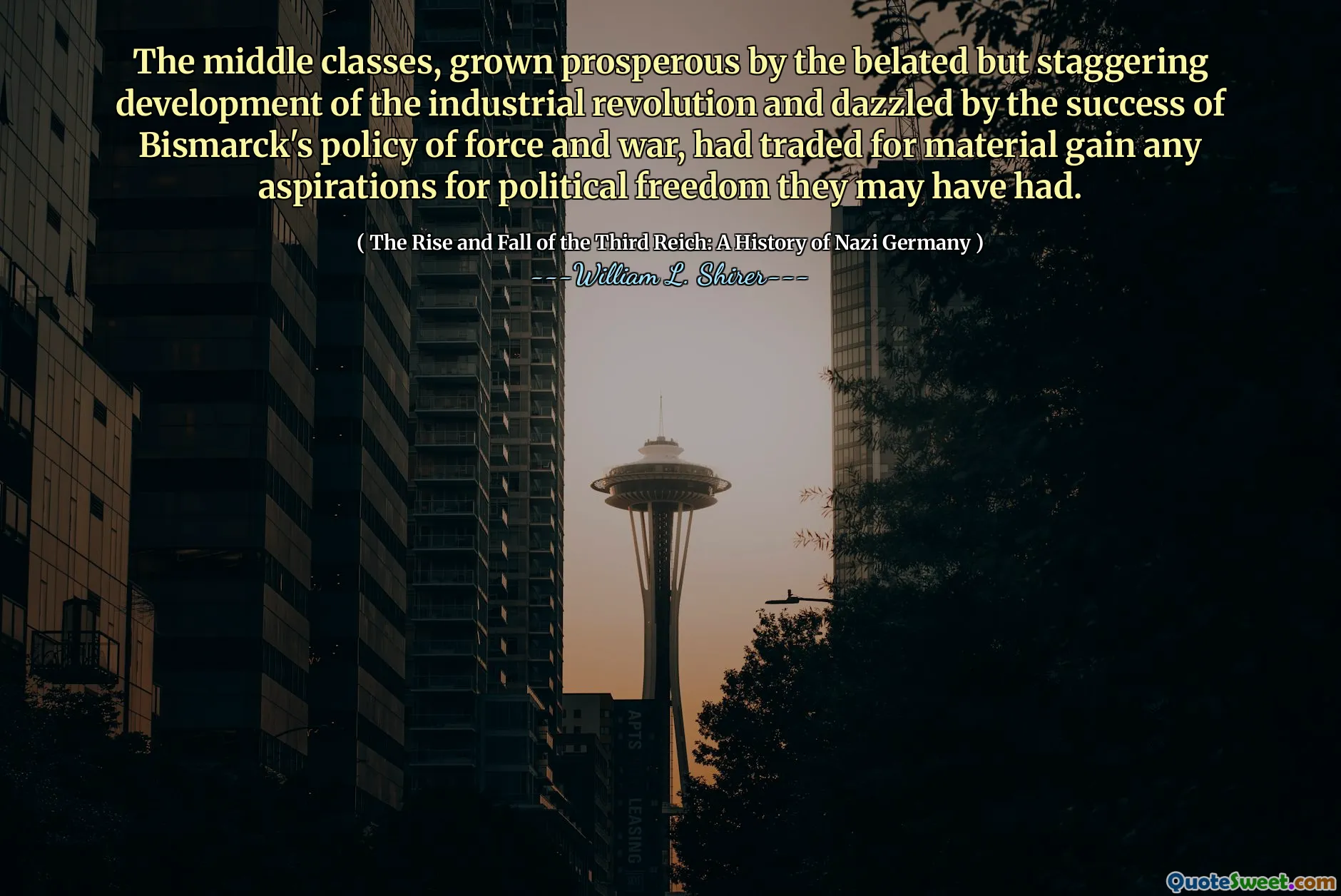
The middle classes, grown prosperous by the belated but staggering development of the industrial revolution and dazzled by the success of Bismarck's policy of force and war, had traded for material gain any aspirations for political freedom they may have had.
This quote sheds light on a significant historical and sociopolitical observation regarding the middle class during a tumultuous era in European history. From Shirer's perspective, the middle class—having benefited materially from the delayed but dramatic surge of the industrial revolution—became captivated by the powerful and militaristic policies enacted by Otto von Bismarck, notably his emphasis on force and militarism as tools of policy.
What stands out is the idea that economic prosperity came at a substantial political cost. The middle class, enjoying newfound wealth and comfort, seemingly prioritized material success over democratic ideals or political freedoms. This trade-off suggests a population willing to sacrifice crucial liberties when faced with the appeal of stability, nationalistic pride, or material advancement. This societal choice possibly facilitated the rise of authoritarianism and militarism by dampening resistance against aggressive state policies.
Importantly, Shirer's analysis from "The Rise and Fall of the Third Reich" hints at the broader dangers for a society that values economic gain above democratic principles. It signals a warning about complacency—the risk of a complacent middle class inadvertently enabling or endorsing the erosion of political freedoms because of short-term material interests. Understanding this dynamic is critical in apprehending how socio-economic factors influence political outcomes, including the susceptibility to authoritarian regimes.
Ultimately, the quote challenges readers to reflect on the worth and price of political freedom versus material progress, and it underscores the complexities within societal shifts during times of rapid change and conflict.








